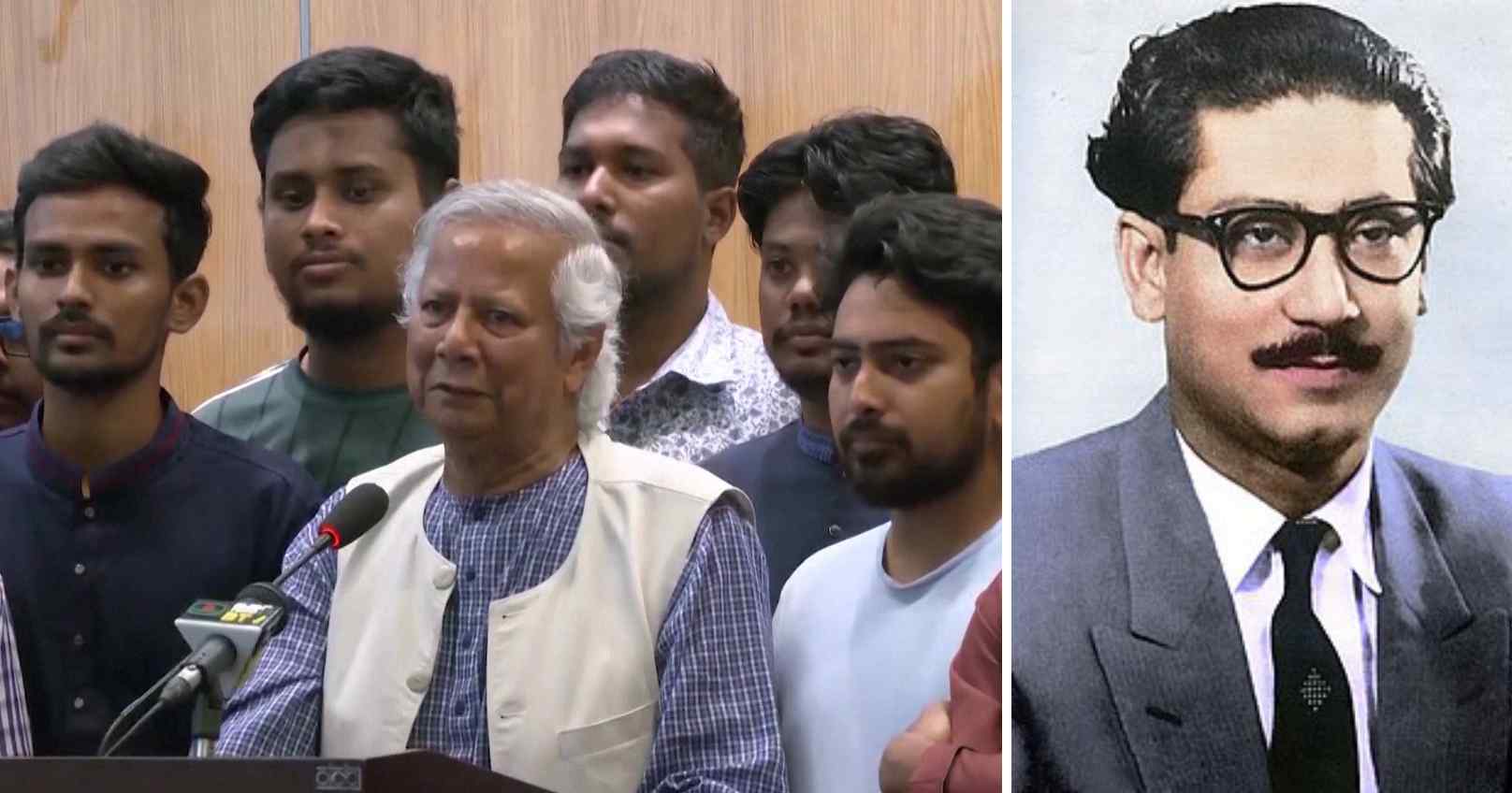Since violent protests forced Sheikh Hasina out of office in Bangladesh this August, her father, Sheikh Mujibur Rahman—Bangladesh’s founding leader—has faced widespread desecration from demonstrators. Statues, portraits, and images of Mujibur Rahman, as well as any symbols of his legacy like banknotes, have been defaced or removed. In a recent incident that shocked many, Mujib’s portrait was taken down from the office of the Bangladesh President, reportedly under pressure from student leaders and endorsed by the caretaker government led by Muhammad Yunus.
The memory of Mujibur Rahman and the significance of 1971—the year Bangladesh achieved independence from Pakistan—have become divisive issues. While a large portion of the population fought for liberation, others backed Pakistan, creating deep-seated tensions that have remained unaddressed.
After Hasina’s departure, the nation has moved closer to Pakistan, with a renewed focus on its founder Mohammad Ali Jinnah and the Urdu language, which Bangladesh once resisted. Recently, Mahfuz Alam, an adviser to the Yunus-led caretaker government and a central figure in the protests, announced that Mujib’s portrait was removed from Bangabhaban’s Darbar Hall, marking an escalation in the tension.
This act has sparked both anger and dismay among many Bangladeshis. Even the opposition Bangladesh Nationalist Party (BNP), traditionally critical of Hasina’s Awami League, stated that Mujib’s portrait should not have been removed. However, BNP leader Ruhul Kabir Rizvi later apologized for his remarks, calling them “unwarranted.”
The removal of the portrait aligns with Yunus’s aim to “press the reset button” in the country. Under his interim government, national holidays commemorating Mujib’s birth and death have been canceled, and his image removed from some currency notes.
Mahfuz Alam, who serves as a special assistant in the caretaker government, stated it was “shameful” that Mujib’s images remained in Bangabhaban after August 5. He added that as long as the public’s opposition to Mujib’s legacy persisted, his images would stay out of sight.
The portrait’s removal seems to have been triggered by visuals showing three new advisers taking their oath in Darbar Hall with the Bangabandhu photo in the background. Leaders of the Anti-Discrimination Student Movement, including Hasnat Abdullah, condemned the presence of Mujib’s image during the oath-taking, questioning the government’s commitment to a fresh start.
This student group has been protesting the appointments of the new advisors, accusing them of having loyalties to the previous government. “Students sacrificed for our freedom, yet decisions are made without consulting us,” Abdullah declared, echoing the anger among students.
The incident has sparked public debate, with many expressing disapproval. Although Rizvi initially criticized the decision, he later retracted his remarks, apologizing for the “unintended statement.”
Article 4A of Bangladesh’s Constitution mandates the preservation and display of Mujibur Rahman’s portrait in key government buildings. However, with Yunus’s directive to “press the reset button,” Mujib’s commemorations, including statues and other symbols, are being dismantled across Bangladesh. His former residence-turned-museum has also faced vandalism and arson since Hasina’s departure.







